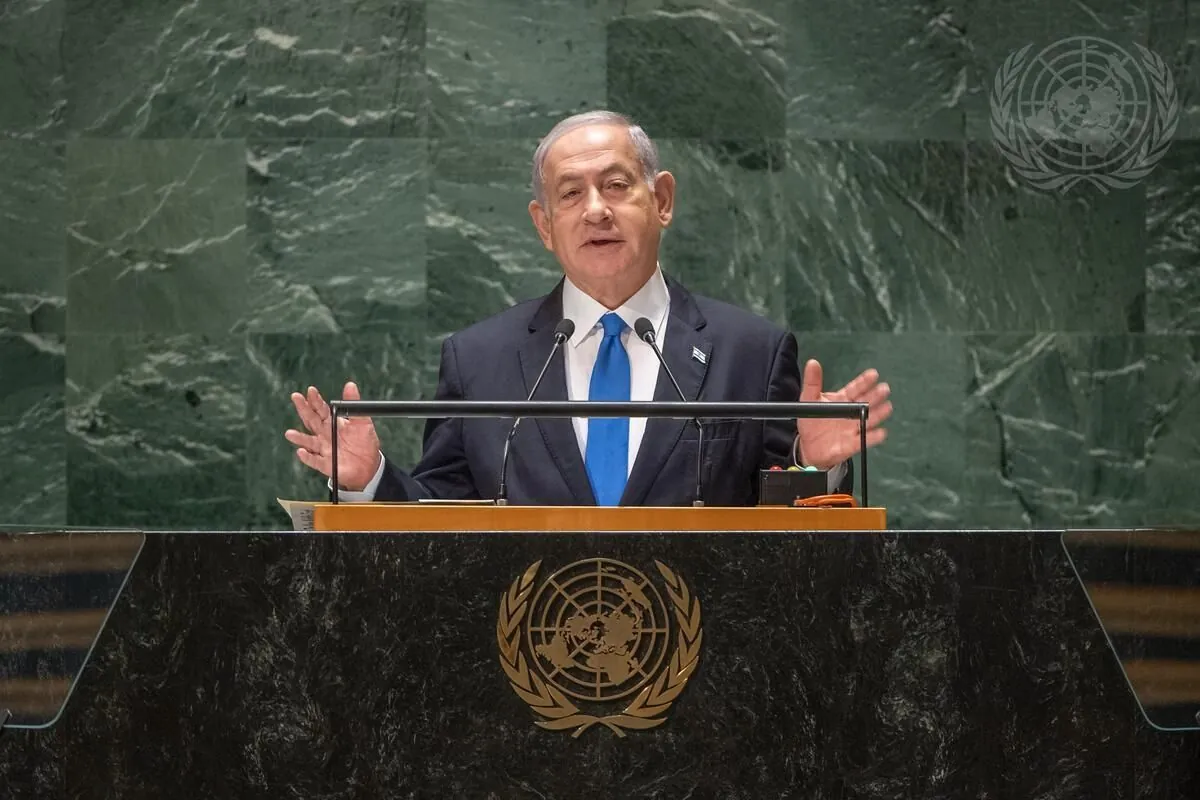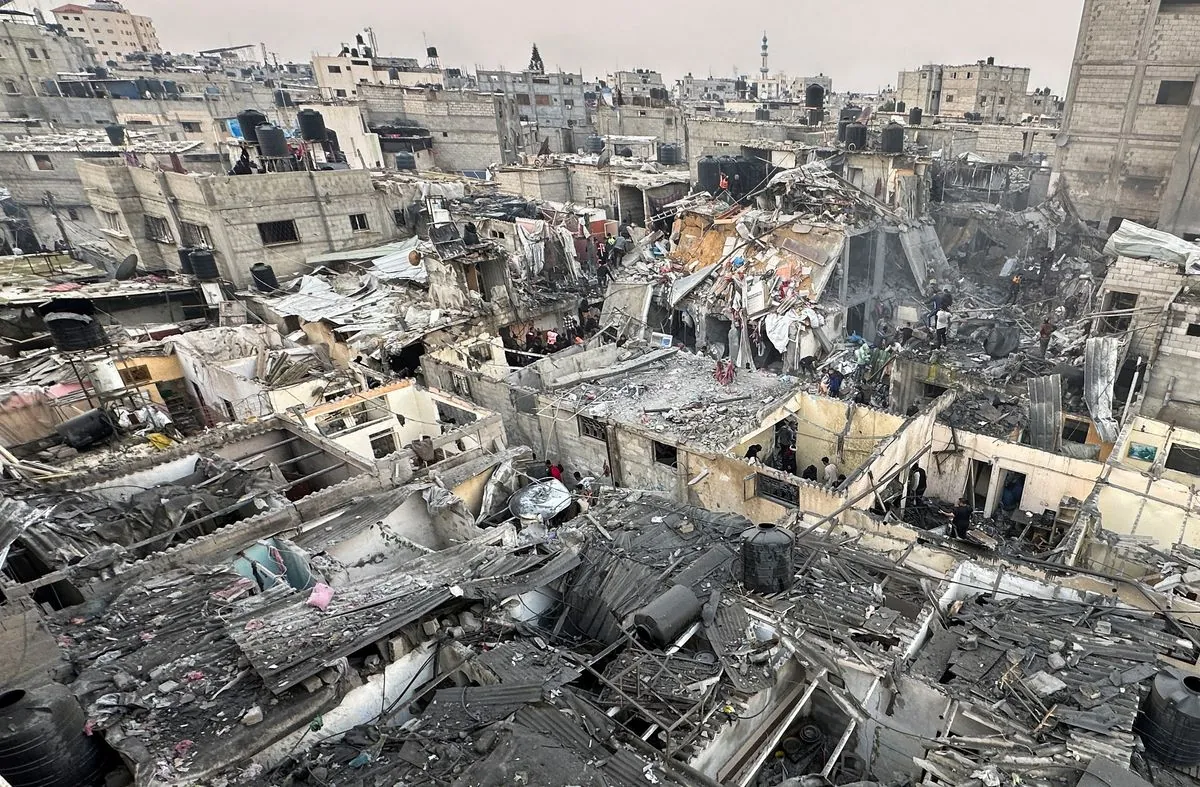Netanyahu's UN Address: A Diplomatic Challenge Amid Regional Turmoil
Israeli PM Netanyahu faces diplomatic hurdles at UN amid Gaza war and regional tensions. His upcoming speech contrasts sharply with last year's optimistic vision, reflecting Israel's current challenges.

As Benjamin Netanyahu prepares to address the United Nations General Assembly on September 22, 2024, he faces a stark contrast to his appearance just one year ago. The Israeli Prime Minister's vision of regional peace, presented with optimism in 2023, has been overshadowed by ongoing conflicts and diplomatic challenges.
The situation in the Middle East has significantly deteriorated since Netanyahu's last UN address. The war in Gaza, initiated after Hamas' attack on October 7, 2023, is approaching its one-year mark. This conflict has resulted in substantial casualties and displacement, straining Israel's international relationships. Additionally, tensions with Hezbollah in Lebanon have escalated, raising concerns about a potential wider regional conflict.

Israel's diplomatic standing has been affected by these developments. Many nations, including long-time allies, have expressed growing concern over the humanitarian situation in Gaza. The United States, while maintaining support, has shown signs of impatience, slowing some weapons deliveries. Britain has suspended certain arms exports due to concerns about potential violations of international law.
Netanyahu's upcoming speech occurs against a backdrop of declining diplomatic capital. His previous UN appearances were marked by dramatic presentations, such as the 2012 speech featuring a cartoon bomb illustration to highlight Iran's nuclear ambitions. However, the current global perception of Israel and its leader has shifted significantly.
"He arrives almost at a point of being persona non grata"
The Israeli leader also faces potential legal challenges. The International Criminal Court is considering issuing an arrest warrant for Netanyahu, a development that could further complicate his international standing.
Despite these challenges, Netanyahu continues to view the UN platform as an opportunity to present Israel's case to the world. His speeches often aim to resonate with domestic audiences as much as international ones. However, critics argue that his approach may be disconnected from the current diplomatic reality.
The ongoing Israeli-Palestinian conflict, which has spanned over seven decades, provides context for the current situation. The establishment of Israel in 1948 and subsequent events, such as the Six-Day War in 1967 and the Oslo Accords in 1993, have shaped the complex dynamics of the region.
As Netanyahu prepares to speak, protests are expected in New York, reflecting global concerns about the situation in Gaza. The international community's focus has shifted from initial support for Israel's response to Hamas to growing alarm over the humanitarian crisis in Gaza.
The Prime Minister's ability to navigate these diplomatic challenges will be crucial. His speech at the UN comes at a time when Israel's actions are under intense scrutiny, and the path to regional stability appears more uncertain than ever.


































